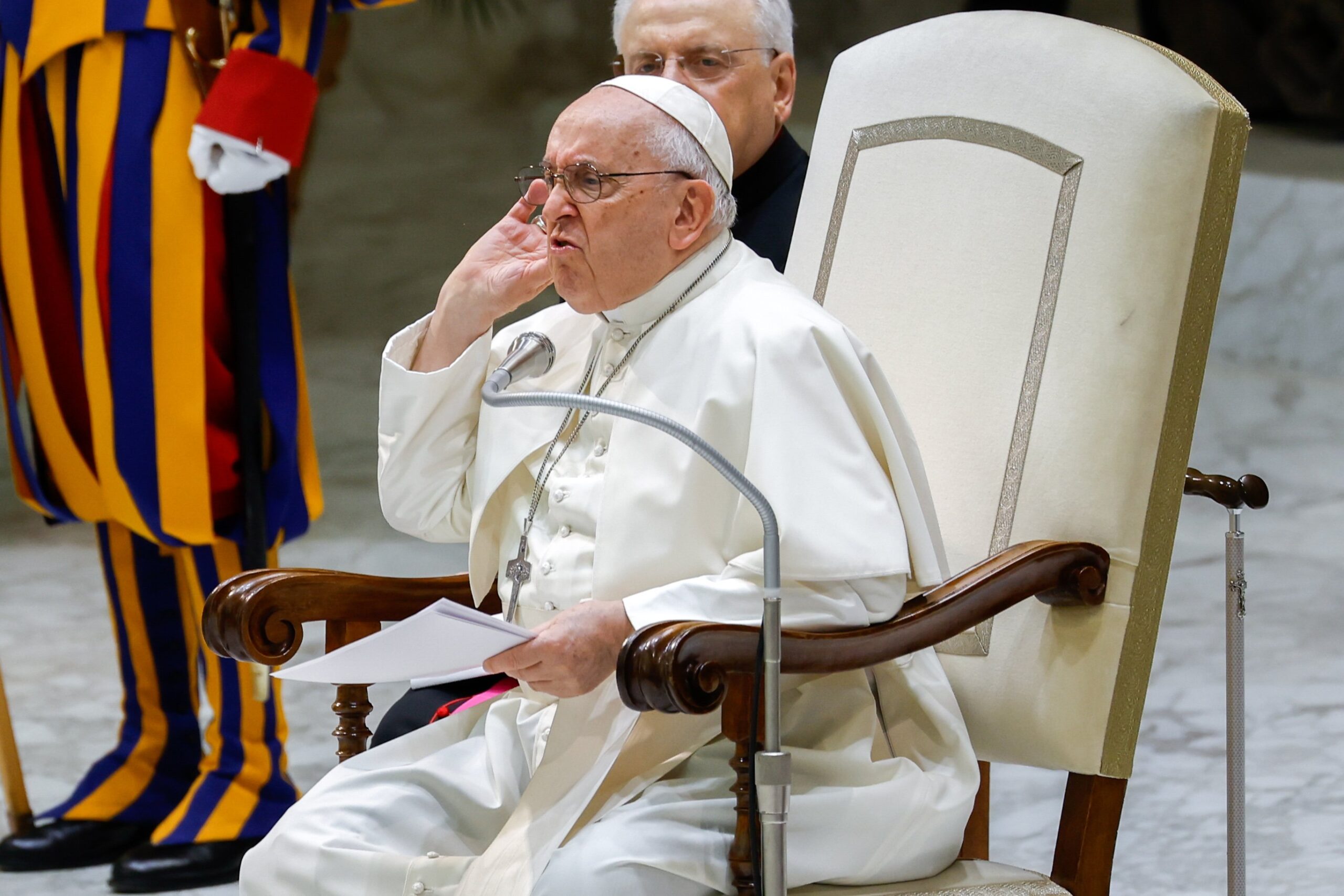
by Elise Ann Allen
ROME (Crux) — Pope Francis Monday, Nov. 6, opted not to give a planned speech to a delegation of European rabbis, saying he was unwell, but maintained the rest of the day’s various audiences and gave all of his other prepared speeches, including some off-the-cuff remarks.
During a Nov. 6 meeting with a delegation of the Conference of European Rabbis, the pope thanked attendees for coming, saying he was happy for their visit, but added that “it happens that I am not in good health.
“For this reason, I prefer not to read the speech, but to give it to you and for you to take it,” he said.
The remark caused alarm given Pope Francis’ two hospital stays this year — one in April for a bout of pneumonia, and a second in June for surgery on an abdominal hernia — as well as his history of other more minor maladies.
However, the remark also generated some confusion, as Pope Francis had five audiences with various individuals and groups prior to his meeting with the European rabbis and did not skip any of those speeches, nor did he show signs that he was experiencing any health challenges.
Following his meeting with the European rabbis, the pope had another audience with a group from the Little House of Mercy in Gela, during which he delivered his prepared speech and added off-the-cuff remarks.
Later Monday afternoon, the pope had a brief audience with 7,000 children from 84 countries around the world, during which he answered several questions from the children, appearing to be in good form.
Vatican spokesman Matteo Bruni told journalists that the reason Pope Francis skipped the speech to European rabbis was that the pontiff “has a bit of a cold and a long day of audiences.”
“He wanted to greet the European rabbis individually and for this reason he handed them his speech. Otherwise, the pope’s activities continue as normal,” he said, prior to the pope’s meeting with the children.
While concerns still linger about the pope’s health at the end of an intense year of hospital stays, international travel, and a lengthy and taxing Synod of Bishops last month, there is also concern among some that anything the pope says will have an overly political interpretation given the ongoing war in Gaza.
With tensions high over Hamas’ refusal to release the hostages taken during its Oct. 7 surprise attack on Israel and the mounting number of civilian deaths in Gaza killed by Israel’s retaliatory strikes, anything Pope Francis says could be seen as potentially inflammatory to one side or the other.
In his speech, which was distributed to the delegation of European rabbis, Pope Francis lamented that “yet again violence and war have erupted in that Land blessed by the Most High, which seems continually assailed by the vileness of hatred and the deadly clash of weapons.”
“The spread of anti-Semitic demonstrations, which I strongly condemn, is also of great concern,” he said.
At a time of heightened violence and destruction, believers “are called to build fraternity and open paths of reconciliation for all and before all,” he said, saying this is done “not [by] weapons, not terrorism, not war, but compassion, justice, and dialogue are the fitting means for building peace.”
Speaking of what he called the “art of dialogue,” the pope said human beings, given their social nature, are fulfilled “in the weaving of social relationships.”
“In this sense, humanity is not only capable of dialogue, but is dialogue itself,” he said, saying humanity must dialogue with both God and others if it is to grow in understanding and in maturity.
In the process of dialogue, God’s word indicates the path of life and “directs our own steps to the search for our neighbor, to acceptance and to patience; certainly not to the brusque passion of vengeance and the folly of bitter hatred,” he said, stressing the importance of believers in being “witnesses of dialogue.”
Pointing to the ongoing process of Christian-Jewish dialogue, Pope Francis said this process advances through encounter and listening, and insisted that to be builders of peace, “we are called to be builders of dialogue, not only with our own strengths and abilities, but with the help of the Almighty.
“Dialogue with Judaism is particularly important for us Christians, because we have Jewish roots,” he said, noting that Jesus was born a Jew and as such, the Jewish heritage is at “the center of Christianity and we who are Christians need you, dear brothers. We need Judaism to understand ourselves better.”
He stressed the importance of maintaining theological dialogue while facing current social, cultural, and political questions of importance.
“We are not two alien creeds, developed independently in separate times and places, having no influence on one another,” he said, recalling St. John Paul II’s visit to the synagogue of Rome in 1986.
On that occasion, Pope John Paul II said that “the Jewish religion is not extrinsic, ‘but in a certain way, it is “intrinsic” to our religion,’ ” Pope Francis said, noting that his predecessor had referred to the Jewish community as “our beloved brothers” and “our older brothers.”
“Therefore, one could say that ours is more than an interreligious dialogue. It is a family dialogue,” he said, saying, “We are linked to each other before the one God; together we are called to bear witness to his word with our dialogue and to his peace with our actions. May the Lord of history and life grant us the courage and the patience to do so.”
